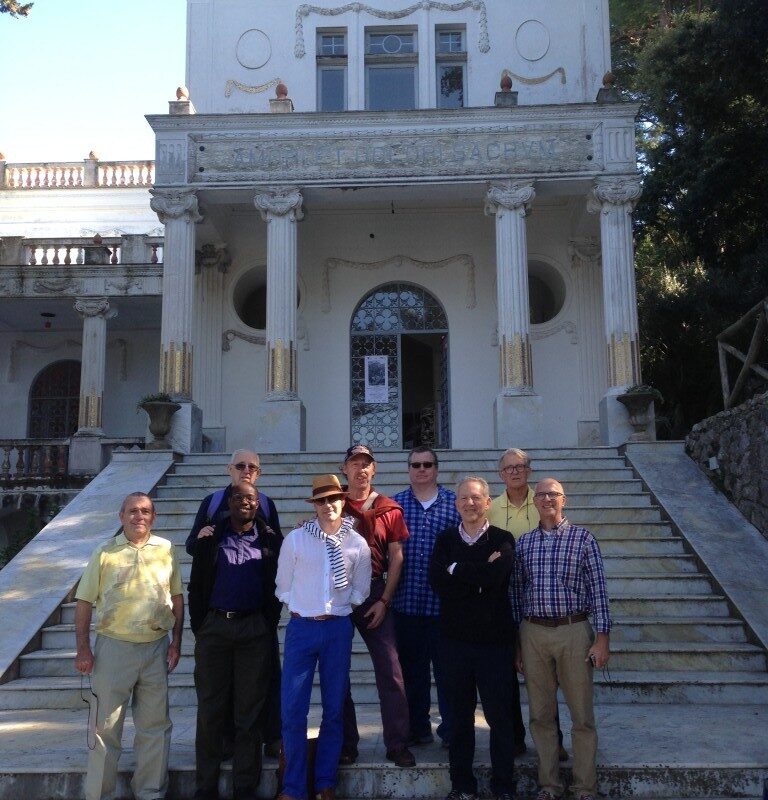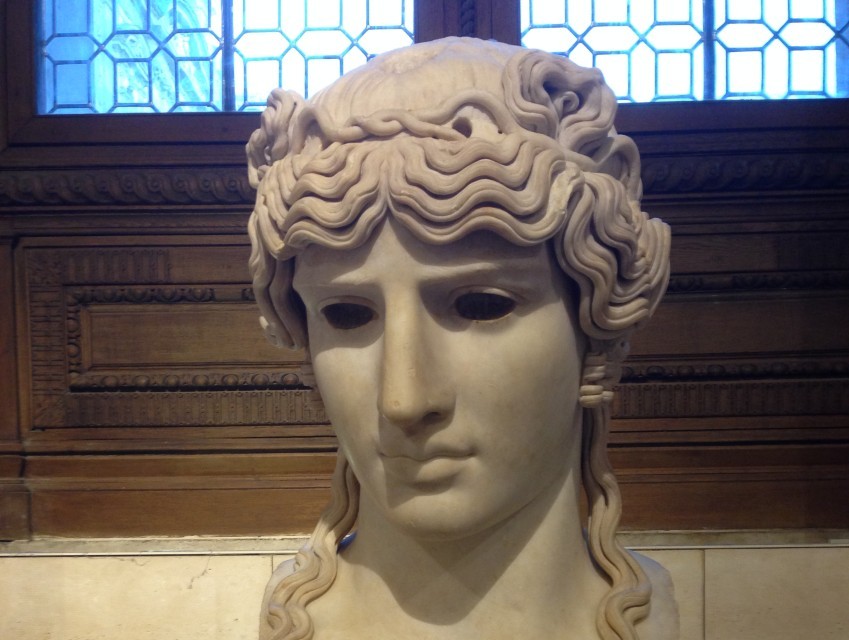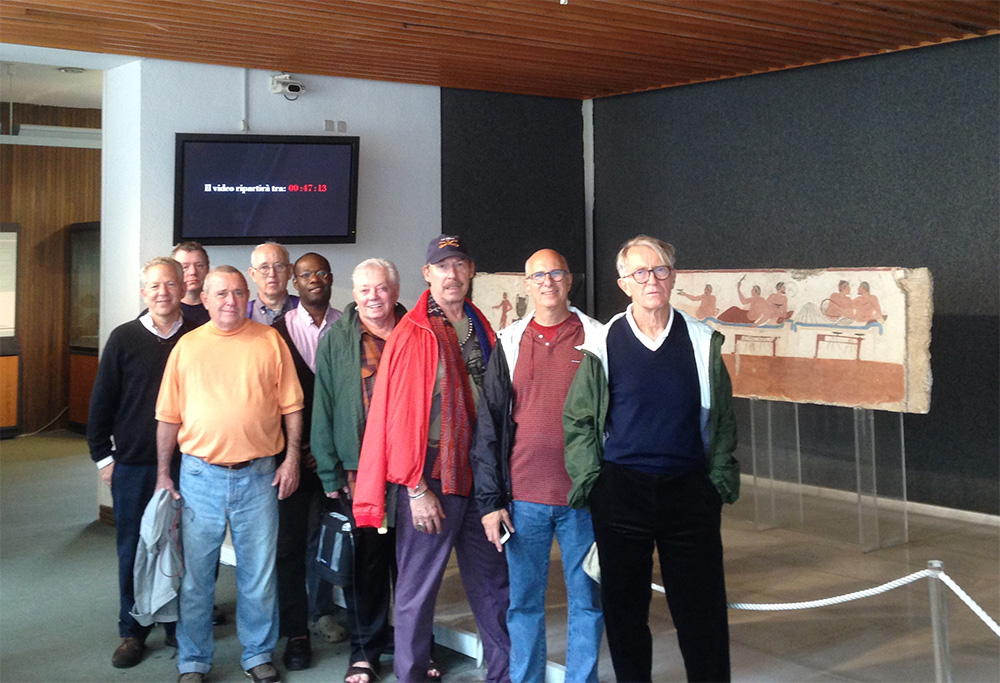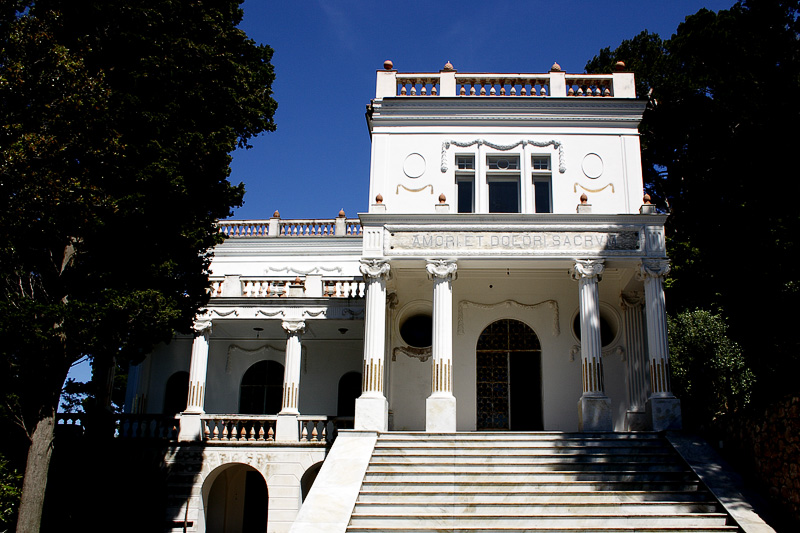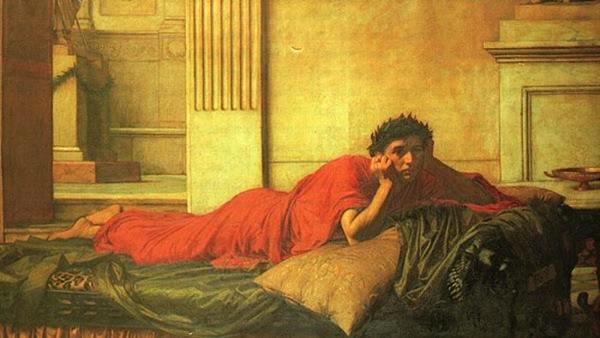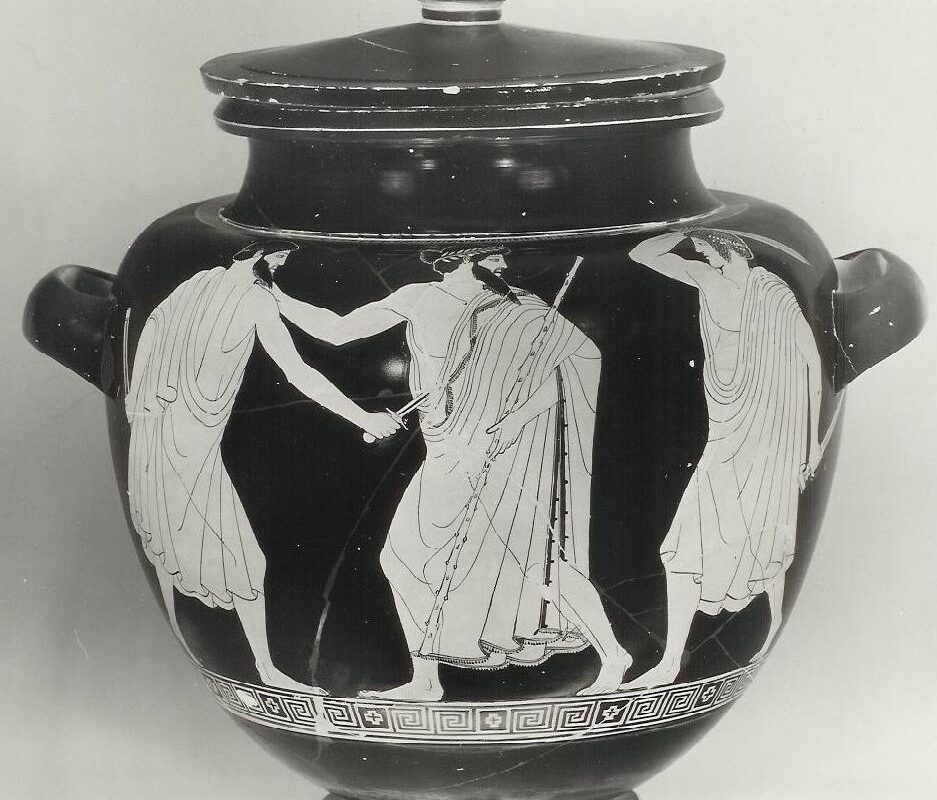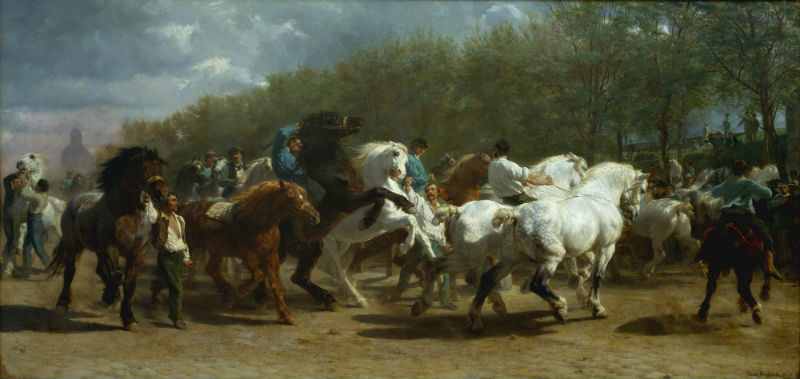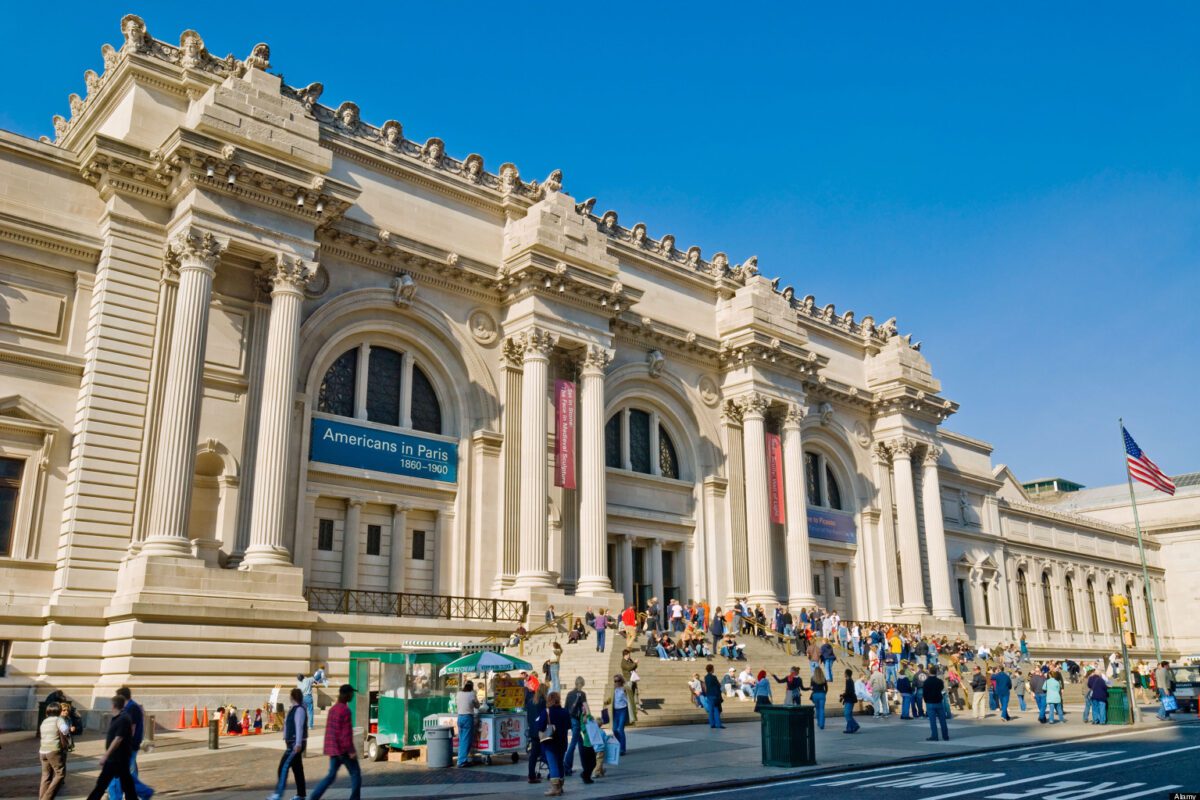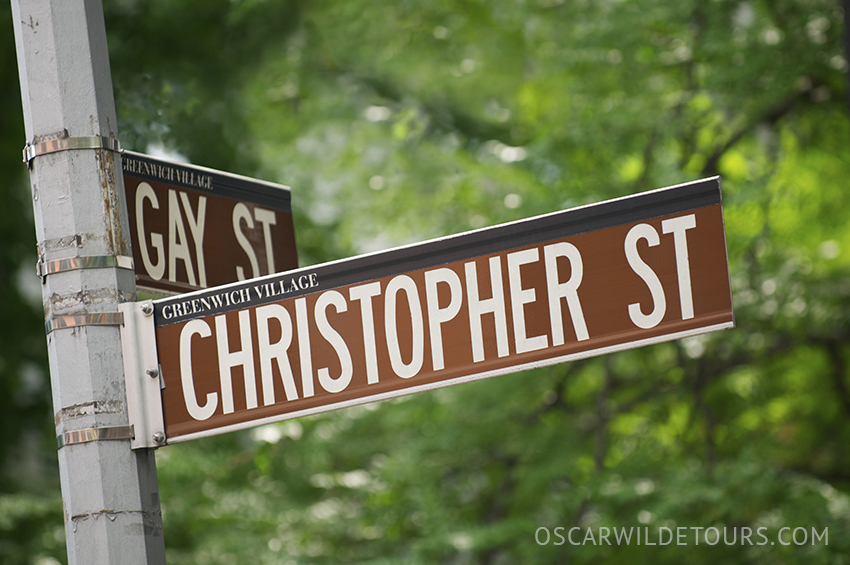This week brought Oscar Wilde Tours a big honor: we won the Travvy silver award for best LGBT tour operator. Pretty amazing, when you think that we are just starting our second season! I think and hope it means that people in the travel industry find our concept exciting—gay travel focusing on gay history and art— and also that they are hearing good things about our tours in New York, Ireland, and Italy. As a result of the prize, I’ve been thinking about what I have learnt in the last 2 years, while starting this company. I’ve been wondering which of all the things I’ve discovered in the cities are my favorites: the things that resonate with my imagination and have enlarged my sense of gay history.
Gay History and Art in Paris–and the Louvre
Last month I was in Paris to do some research for our gay history and art tour of London and Paris tour in this coming August, and wow did I hit gold. We had always planned on including a tour of the Louvre: several local guides offer a tour of the Louvre following the theme of male beauty through the collection, and we intended to have one of them do that for us.
Gay history and art tour of Italy launched!
For a couple of days, I’ve been thinking I need to write a summary blog post about the first gay history and art tour of Italy. But how to talk about 10 intense days of touring? Should I talk about the people? I’d have to ask for everyone’s permission to tell you about the fascinating cast of characters; but I can tell you that it was a very lively group and gratified me in particular by how well they got along. I remember how happy I was when I passed the bar at our gorgeous hotel overlooking the bay of Sorrento and saw them all having drinks together. It was that way right until the last breakfast.
Gay History on Capri
Our gay history and art tour of Italy is starting in 5 days, so I’m in Italy making a few last-minute arrangements. And in the meantime, I’m doing a bit of gay history exploration–today an exploration of gay Capri. I went out to Capri mainly to look into the ruins of Emperor Tiberius’ villa. Tiberius, Augustus’ stepson and successor, has a miserable reputation. The main problem seems to be that he hated being Emperor; plus he didn’t have much charisma–and Augustus was a hard act to follow. In the end, he retired to a villa on Capri for the last ten years of his reign. Frankly, my suspicion is that like Greta Garbo, he wanted to be alone.
Nero’s Palace and Rome’s Gay History
Who was Rome’s gayest Emperor? That’s a tough one. There were rumors about almost every Emperor: Julius Caesar’s soldiers for instance joshingly called him “the husband of every wife and the wife of every husband.” One of the top competitors, however, is certainly Nero, who was said among other things to have married two of his male slaves:
Gay Heroes of Ancient Greece
Check out my latest blogpost for the Gay and Lesbian Review. It’s about Harmodius and Aristogeiton. Along with Achilles and Patroclus in the Iliad (whom the ancient Greeks mostly saw as a couple), Harmodius and Aristogeiton were the biggest gay heroes of ancient Greece . Harmodius and Aristogeiton were a Greek-style male-male couple, who assassinated Hipparchus, brother of the Athenian tyrant Hippias. This may have been a private act of revenge, and it happened more than ten years before the end of the tyranny. But the Athenians thought of them as the founders of the democracy. Their story shows how different cultural attitudes toward gay love can be. The Athenians wanted a male-male couple to have founded the democracy, because they considered a certain kind of male-male love the ideal matrix for courage and loyalty to your fellow soldier!
Gay Italy tour in October 2015!
Here’s a blog post that I wrote last week for the Gay and Lesbian Review about our gay Italy tour. The GLR has decided to recommend our tour to their readers; the Leslie Lohman Museum will also recommend us to their members soon. These are institutions of which I think very highly, so I am thrilled to have won their good opinion!
Our LGBT history Met tour in Curve!
We recently got a great write-up from Merryn Johns, Curve Magazine’s wonderful editor-in-chief. This is a source of great pleasure to me, as I have struggled hard to include Lesbian history in our tours. Unfortunately, as anyone who studies LGBT history knows, there is less evidence for Lesbian history than gay male history from almost every period and place and culture. This is not as you might imagine because of prejudice against Lesbians.
LGBT tour of the Metropolitan Museum!
Amazing: it’s only 6 months since we decided to start New York gay history tours, and it’s already happening. Last Friday evening, I gave our first gay history tour on US soil: a preview of our LGBT tour of the Metropolitan Museum, given for a gay college alumni group.
First ever gay history tours of New York!
This week Oscar Wilde Tours is announcing its 2015 season, including the first ever gay history tours of New York City. Who’d have thought? Until just a few months ago, I was planning to start a series of gay history tours of London and Paris this year. But people kept asking, When are you going to do New York? So after a while, I thought, Well, New York certainly has a ton of gay history, so let’s see what we can do at home!

